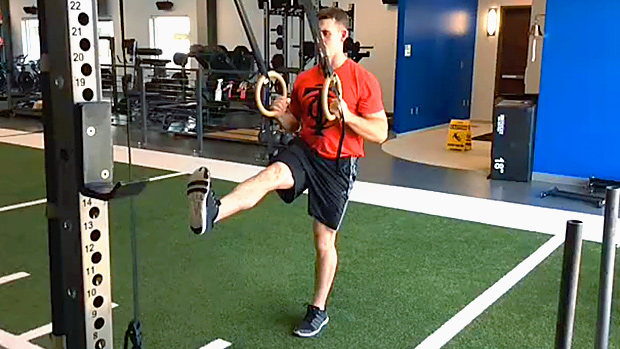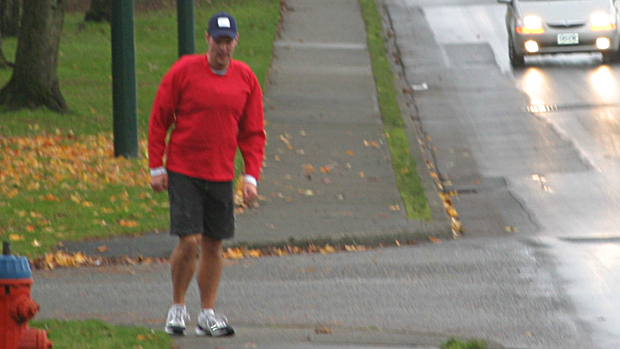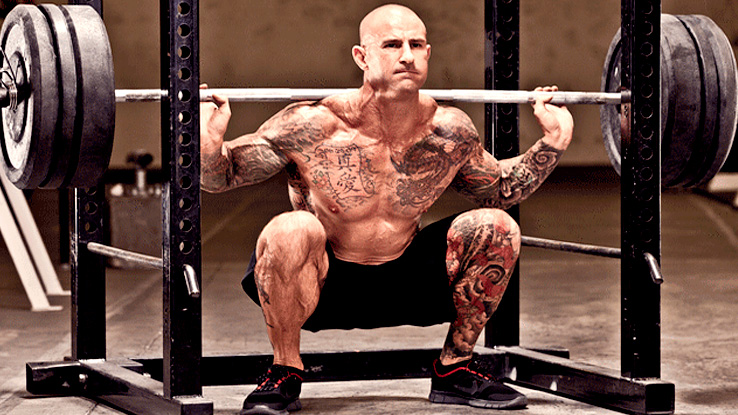I'll come right out and say it: I've never been a big fan of dumbbell flyes. I've always considered them an over-hyped, potentially dangerous dinosaur of a chest exercise.
Sure they "work" in as much as they put a good stretch on the pecs, but no better than many other chest exercises. Besides, with dumbbell flyes, the risk of pec and biceps tears is a huge concern, especially as the weights get heavy. Too risky. As such, I've generally avoided flyes, only pulling them out of my exercise toolbox for an occasional change of pace.
That all changed when I had a chance to grab a workout with IFBB pro bodybuilder Ben Pakulski. Now Ben may be built like a human wrecking ball, but he's always struggled with his massive deltoids overpowering his pecs during chest movements.
To fix this, Ben does dumbbell flyes in a very specific way, which he was good enough to show me during our workout together. He calls them manual resistance dumbbell flyes. After just one set, I was sold.
- Set a bench on a low incline.
- With a pair of moderately heavy dumbbells, do a pair of strict dumbbell flyes, gradually going deeper into the bottom stretch with each rep. Do not force this stretch; let your ROM extend on its own.
- At failure, drop the dumbbells and grab a pair of 'bells about 20 pounds lighter.
- Continue performing strict reps, except now have your partner gently push down on your elbows as you lower the weight, forcing you to fight the resistance that much harder.
- At the bottom of the rep, make sure your partner stops pushing. You don't want extra resistance in this highly fragile part of the rep.
- Return to the top position and repeat the process. Your partner should adjust how much they push based on your level of fatigue, so be sure to choose partners wisely. A college kid with one eye on his iPhone and the other on his eleven-teen inch guns would not be a suitable fit.
- Expect to be gassed surprisingly quickly. If not, your partner went too easy on you. Have him step it up on the next set.
What makes this exercise better than flyes with chains, bands or cables is that your partner can adjust the resistance mid-rep. There's no need to stop, fiddle with the equipment, dig up a half-pound plate, etc. He just pushes down with more or less resistance.
Here's the deal. If you typically can feel your chest working during pressing movements, perform this exercise third in your chest routine.
For example:
| Exercise | Sets | Reps | |
|---|---|---|---|
| A | Low Incline Dumbbell Bench Press | 4 | 6-8 |
| B | Hammer Strength Flat Press | 4 | 8-10 |
| C | Manual Resistance Flye | 3 | 8/8 * |
* Manual Resistance Flye — 8 reps, drop the weight 20 pounds, do 8 more reps
However, if feeling your pecs working is a challenge, you should do these earlier in your routine. Not first – flyes work best with some blood in your pecs – but certainly second.
For example:
| Exercise | Sets | Reps | |
|---|---|---|---|
| A | Low Incline Dumbbell Bench Press | 4 | 6-8 |
| B | Manual Resistance Flye | 3 | 8/8 |
| C | Hammer Strength Flat Press | 4 | 8-10 |
Make sure you give these a try. I've been doing these faithfully and my chest has gotten noticeably bigger and thicker, especially the upper pecs.



